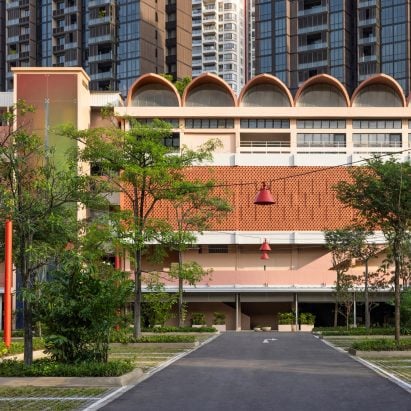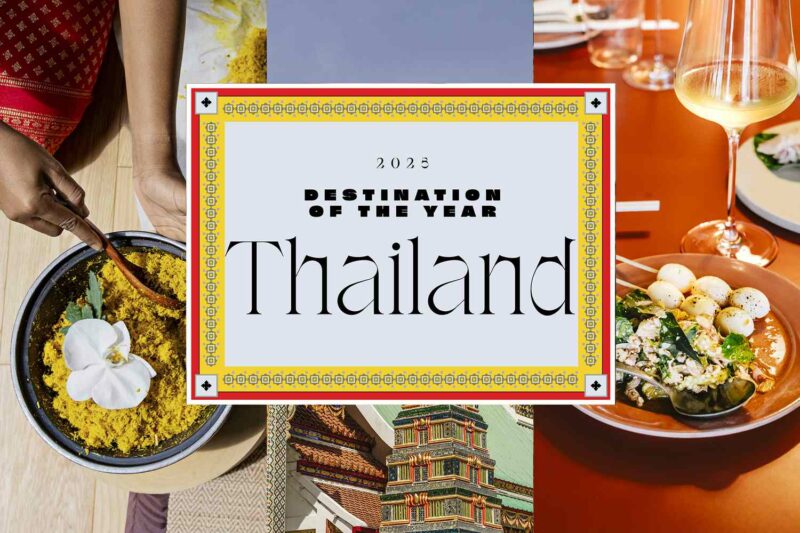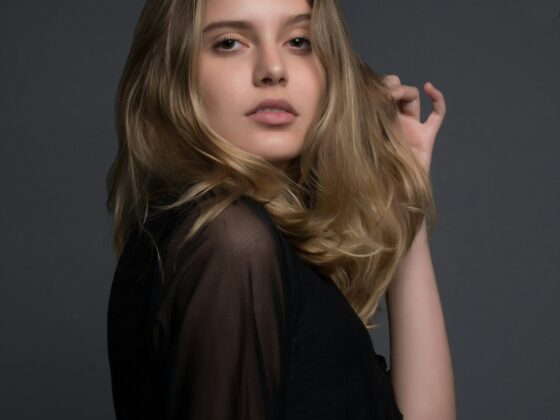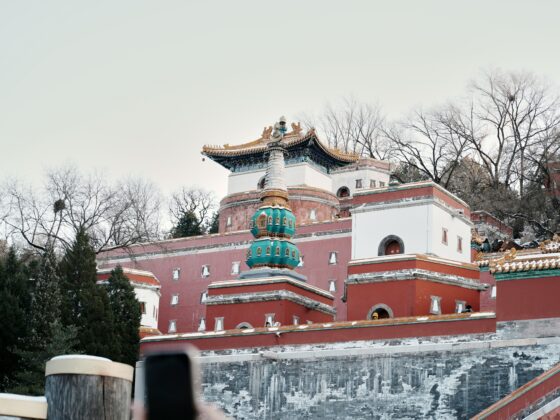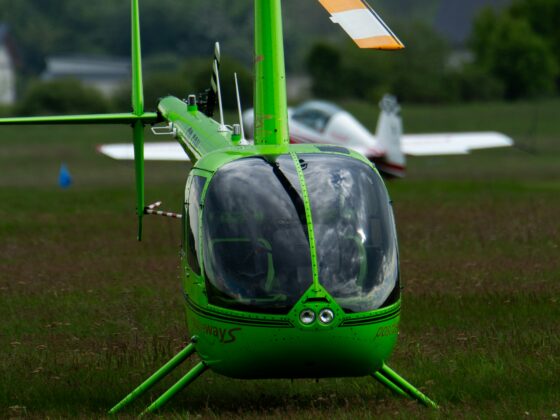A 1969 school building in Singapore with “modern tropical” architecture has been converted into New Bahru, a shopping and dining location by local studios FARM and Nice Projects.
Architecture studio FARM transformed the 20,156-square-metre site into a lifestyle hub that houses restaurants, shops, wellness and culture spaces, as well as serviced apartments.
The New Bahru building had been used as offices and food and beverage (F&B) spaces after the relocation of the school, which was built just four years after Singapore became independent.
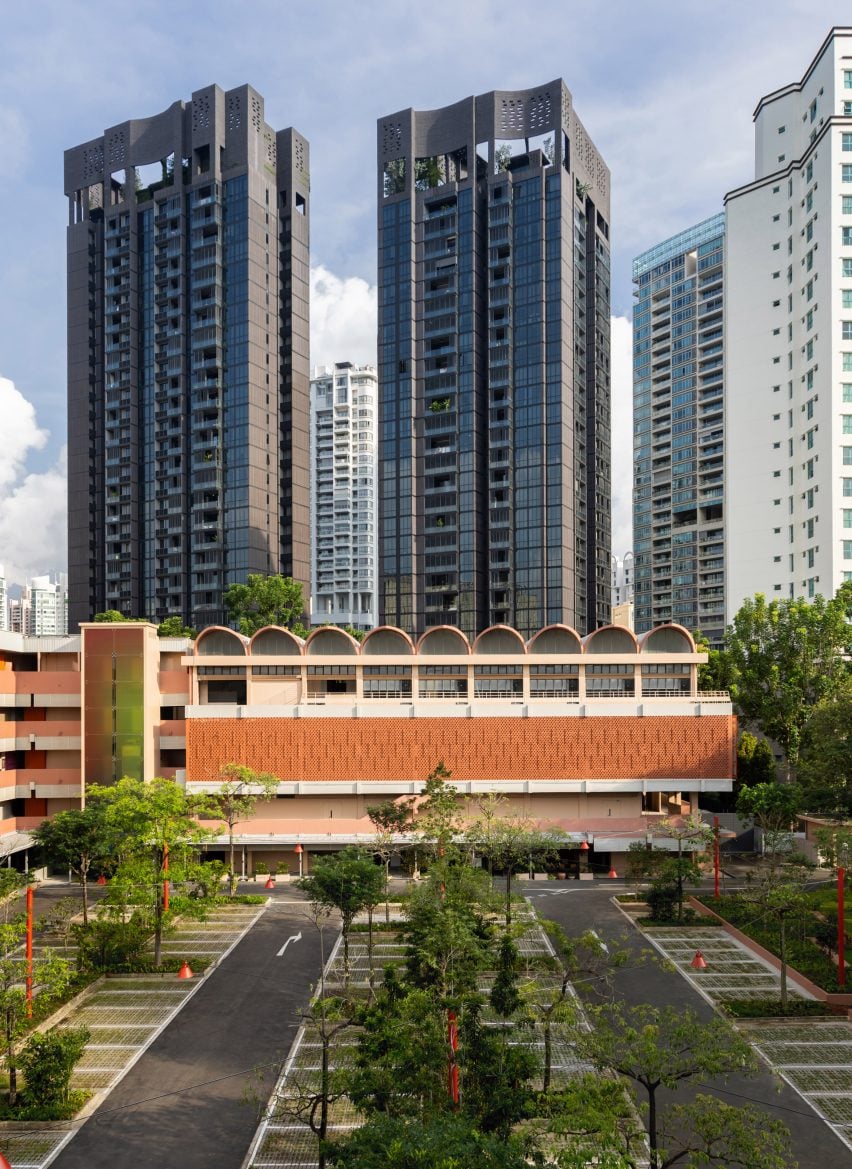
“To share some context, the project is based in an existing 1969 school building with modern tropical architectural features, located in Singapore’s cosmopolitan River Valley neighbourhood,” FARM director Nan Chyuan Tiah told Dezeen.
“By 2013, the old school building was repurposed for temporary commercial uses, such as offices and F&B, to better serve the needs of that time,” Tiah added.
FARM wanted to keep the focus on the existing modernist architecture, making only light changes to the exterior of New Bahru.
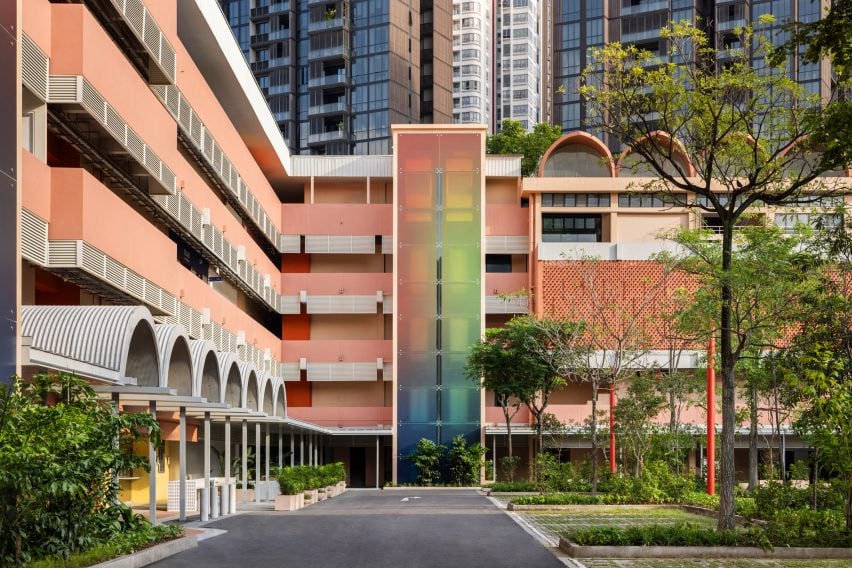
“The building was generally in good condition, and both the clients and we fell in love with all its quirks,” Tiah said. “We saw a lot of charm and potential in them, adopting a minimalist approach to let the original elements and spaces shine.”
“Our aim was to avoid overdesigning the space but do just enough repairs and reorganisation of the spaces while leaving plenty of room for imagination,” he added.
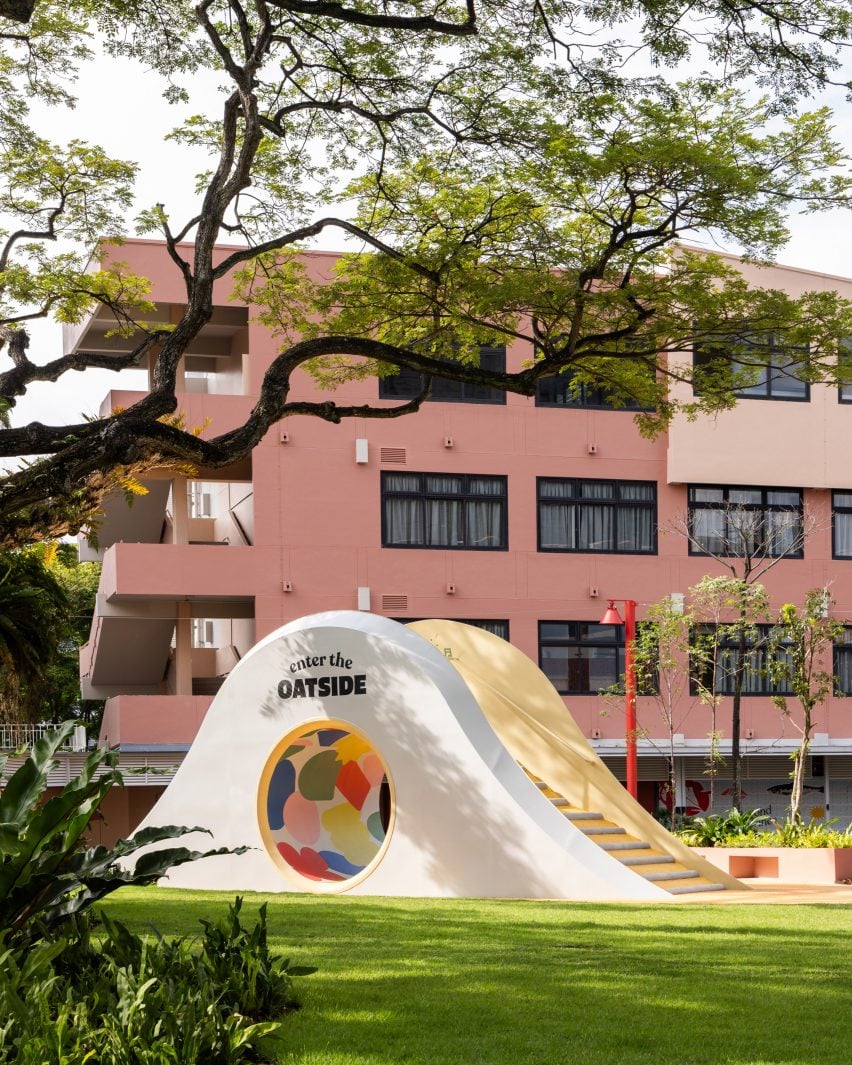
The biggest change to the layout was the reintroduction of a central focal point, with a lawn and playground replacing parts of an existing car park.
“We decided to remove part of the car park and create a new central lawn, taking advantage of the beautiful existing rain trees to frame this new public space,” Tiah explained.
“This required major earthworks and a redesign of the overall traffic flow. It was a massive undertaking, but we believed it was essential to create a new centre of gravity not just for the development, but also for the neighbourhood as a whole.”
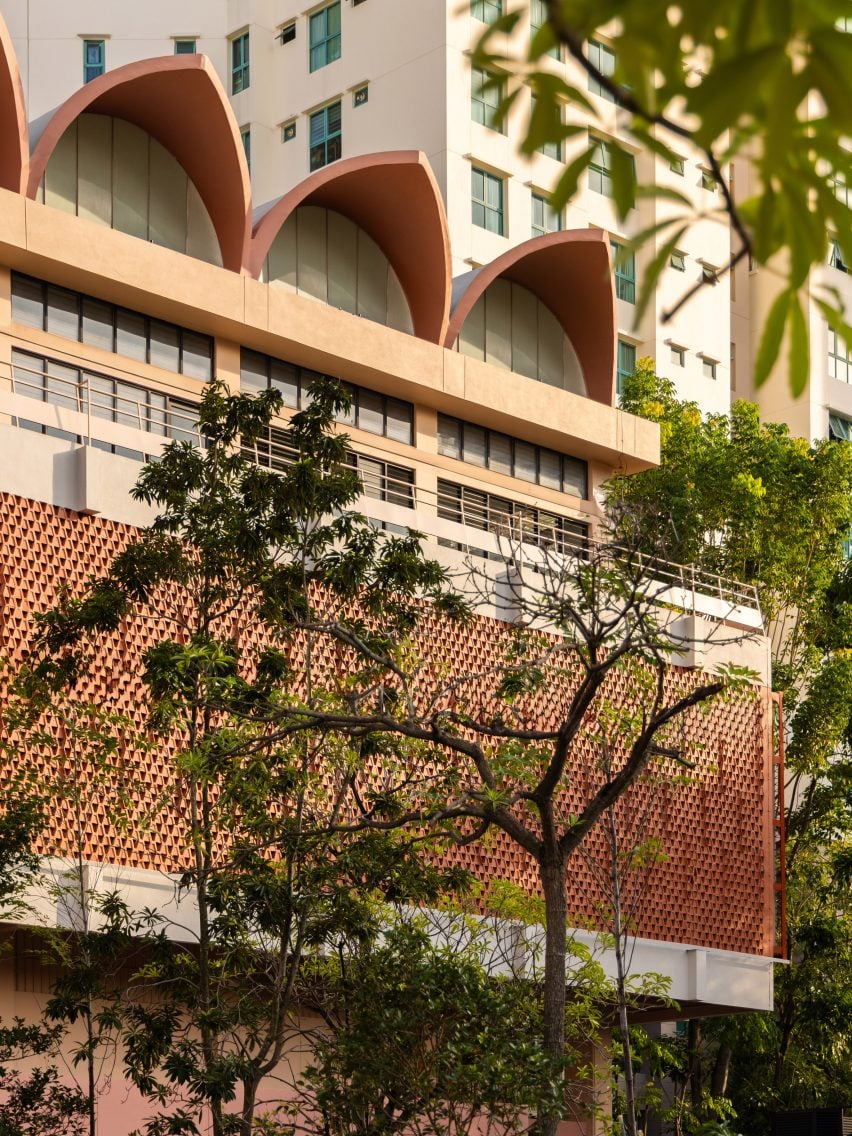
While the facade is structurally the same as when the building was a school, FARM painted it a warm pink and added steel and aluminium details.
“Ultimately, we wanted to infuse a sense of modernity and elegance while embracing the building’s aged patina,” Tiah said.
“We incorporated a significant amount of metal – aluminium and steel – against the building’s weathered concrete to create a striking contrast between old and new,” he added.
“We also drew from New Bahru’s branding, the use of bold, warm colours punctuates the space, enlivening the building and adding a bit of character.”
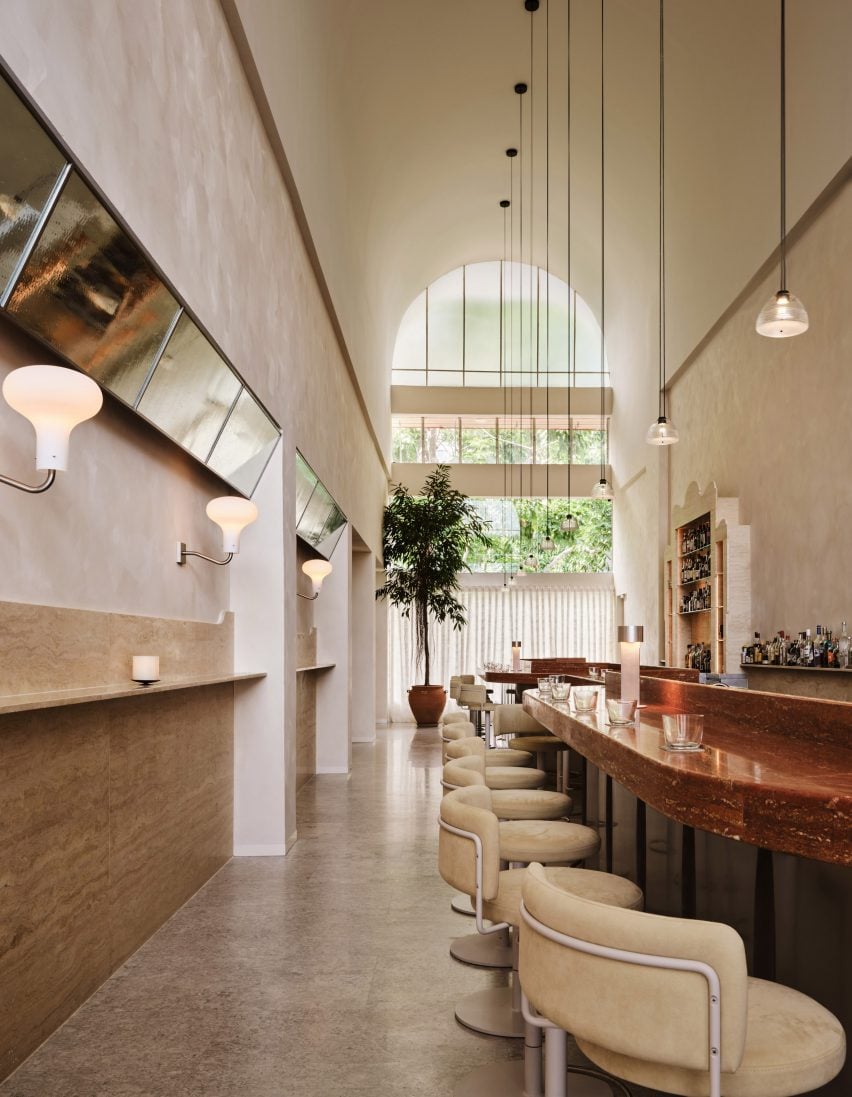
Design studio Nice Projects, which was the creative consultant on New Bahru, worked with the tenants of the space to create varied interiors designed by different designers chosen by developer The Lo & Behold Group.
“The intention is to celebrate local entrepreneurs and creatives, offering visitors an experience that stands apart from the typical cookie-cutter offerings,” interior designer Sacha Leong of Nice Projects told Dezeen.
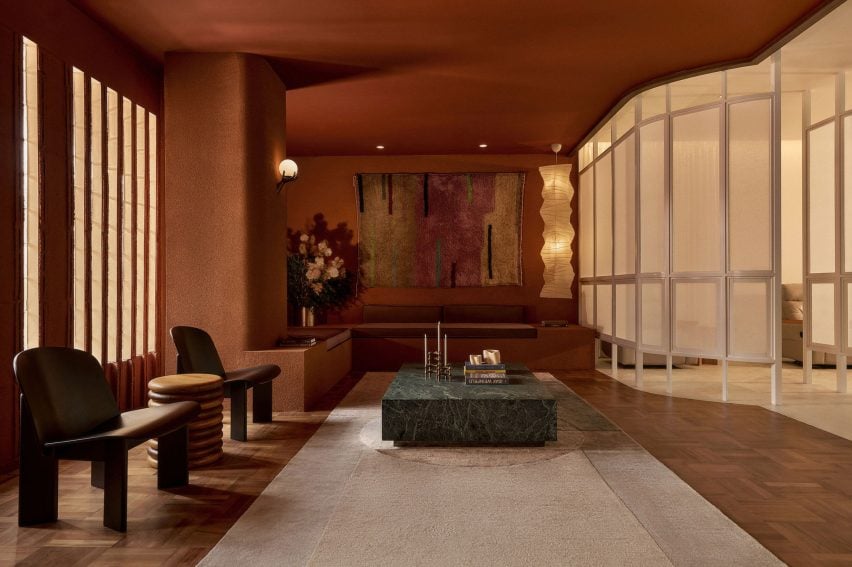
“We trust in their vision and creativity, which is why tenants were given full control over their space design, as long as they adhered to building guidelines such as tenancy lines and safety standards,” Leong added.
“The goal was to ensure that the individual parts still felt holistic as one, and we did so by controlling the lighting temperature and porosity across different trades.”
Among the tenants at New Bahru is wellness space Hideaway, which has an interior by design studio Parable and features a tea lounge, saunas and treatment rooms. There is also a fine dining restaurant called Somma, which was designed by Nice Projects.
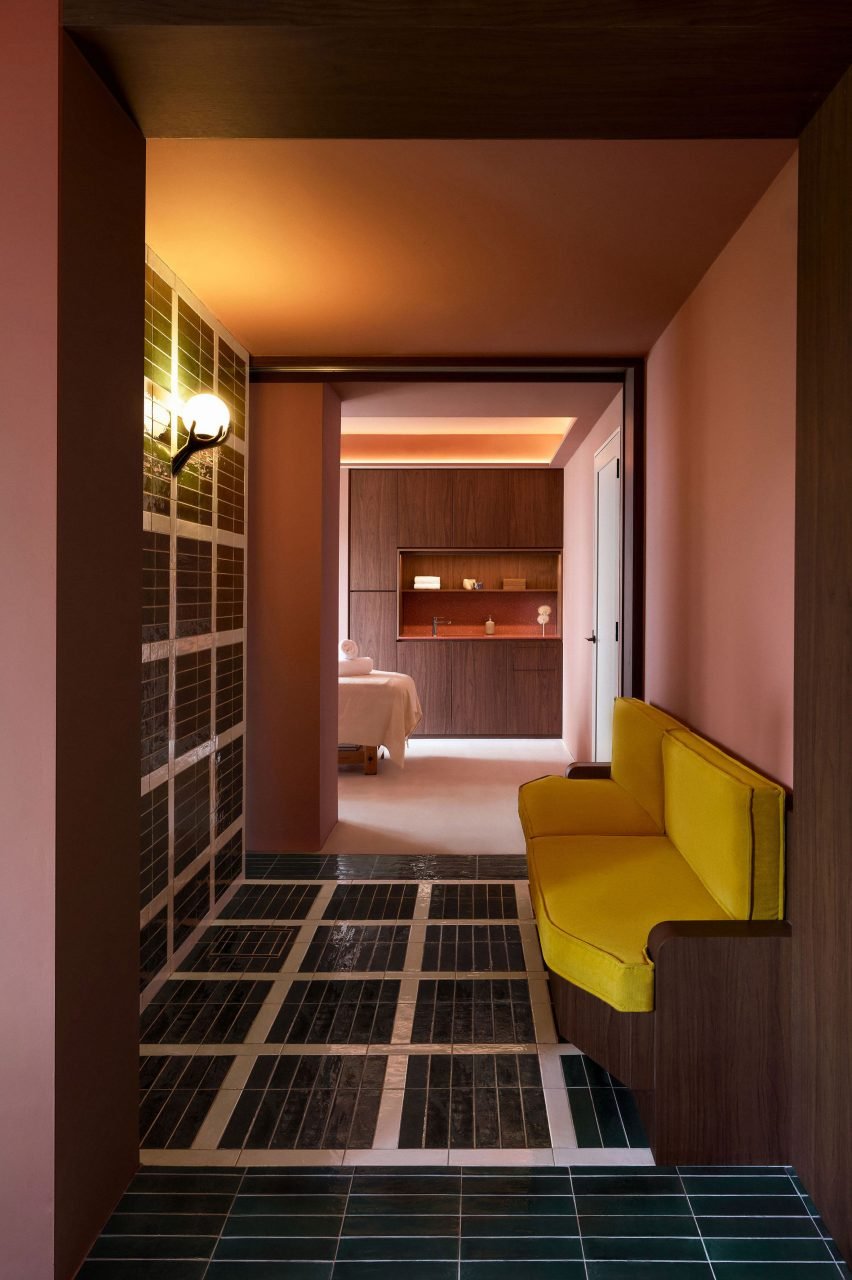
The studio aimed for New Bahru to feel “refreshed”, Leong said.
“As Jane Jacobs famously said, ‘new ideas need old buildings’,” Leong explained.
“It was crucial to us that the spaces felt refreshed – not a patchwork of old and new, but recognisable as a school adapted to suit its new purpose.”
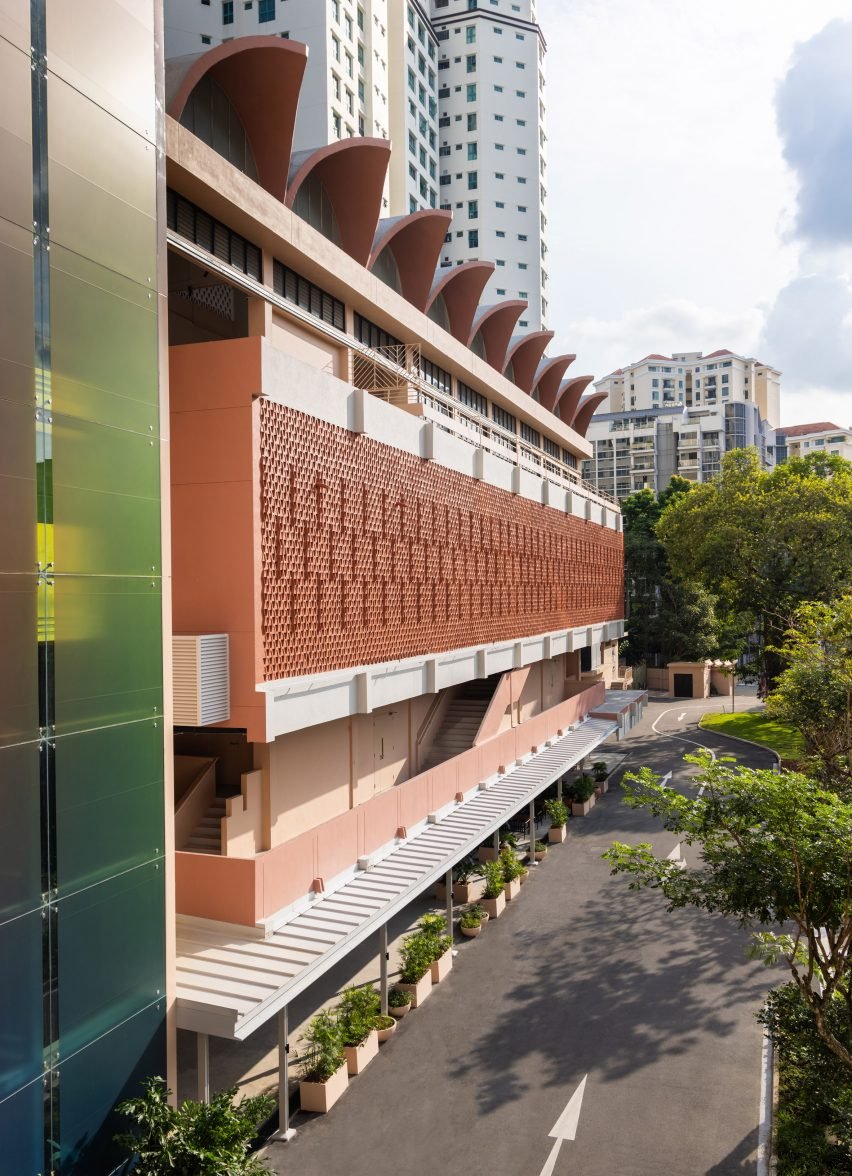
Nice Projects also worked with Portland-based studio OMFGCO to design the overall colour palette for the space.
“We worked closely with OMFGCO to create a colour palette for the overall development and wayfinding that felt lively and fresh and offered many opportunities, combining them in different ways for a variety of uses,” Leong said.
“We chose a palette of soft warm colours that will age well because we wanted to create a welcoming and friendly environment which felt respectful to the original architecture – and there were accents of coral to add distinctiveness and character.”
Other recent Singapore projects include an aluminium hotel extension by WOHA and a collaborative workspace by Ministry of Design.
The exterior photography is by Finbar Fallon, interior images courtesy of The Lo & Behold Group.
